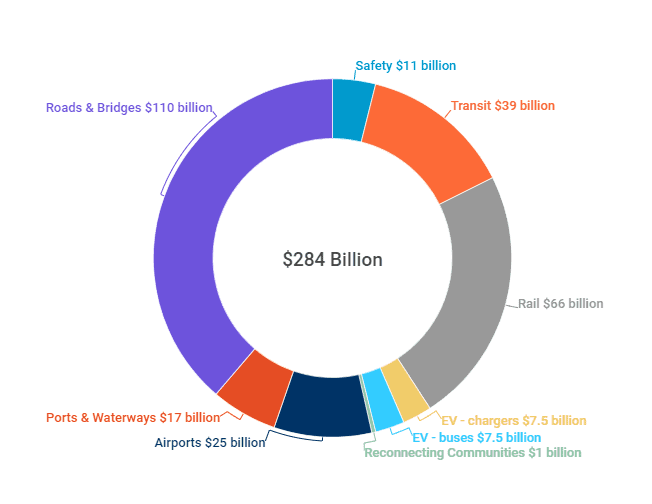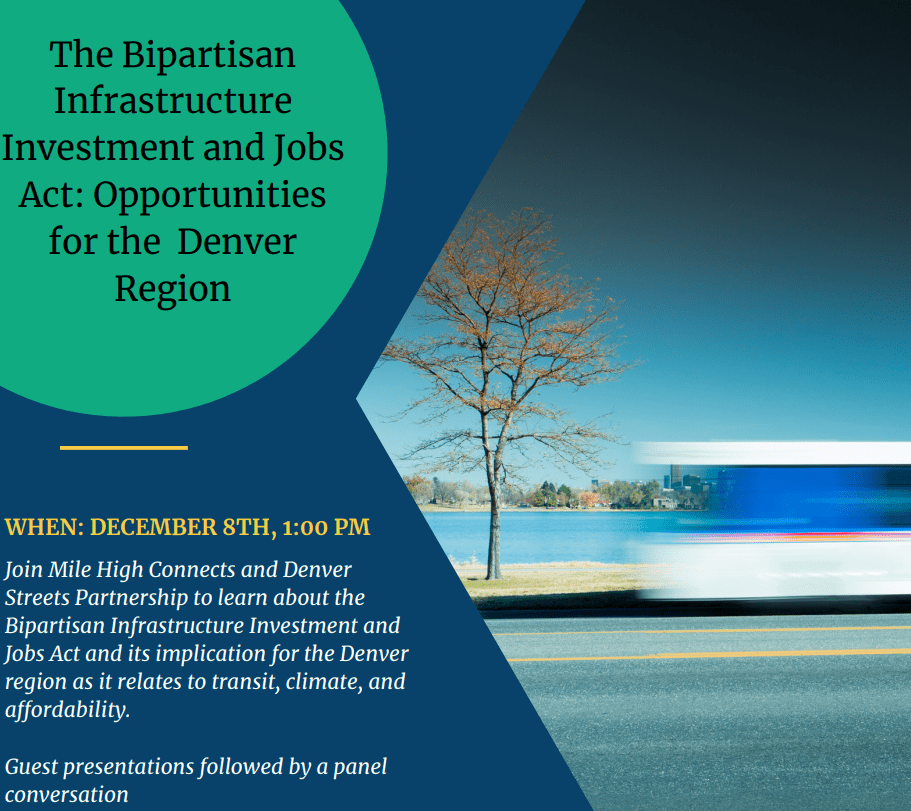Colorado health advocates presented to the Joint Budget Committee on glitch-plagued Public Health Emergency Unwind.
Recent articles
2024 Legislative session: addressing economic challenges at the individual and state level
Addressing economic challenges at the individual and state level after the 2024 Colorado legislative session.
CCLP’s 2024 legislative wrap-up, part 2
CCLP's 2024 legislative wrap-up focused on expanding access to justice, removing administrative burden, supporting progressive tax and wage policies, preserving affordable communities, and reducing health care costs. Part 2/2.
CCLP’s 2024 legislative wrap-up, part 1
CCLP's 2024 legislative wrap-up focused on expanding access to justice, removing administrative burden, supporting progressive tax and wage policies, preserving affordable communities, and reducing health care costs.
What the Infrastructure Deal Means for Colorado Communities

Following the mid-November signing of what has been called a “once in a lifetime investment”, the Bipartisan Infrastructure bill (BIF) has left many wondering what the impact will be on communities. The bipartisan infrastructure bill, which was signed into law, provides $973 billion over five years and aims to rebuild the United States’ roads, bridges, airports, and rails, expand access to clean drinking water, ensure high-speed internet access, tackle the climate crisis, advance environmental justice, and invest in communities that have too often been left behind. The bill includes historic levels – $284 billion – in new investments for transportation projects, responding to the urgency of climate change and the need to address long-standing inequities in mobility access.
Here’s what the transportation funds included:

(Graphic: National Association of Counties)
Joined by speakers Alvaro Sanchez, Vice President of Policy with The Greenlining Institute, Molly McKinley, Policy Director with Denver Streets Partnership and Luke Ilderton, Deputy Director with Energy Outreach Colorado, MHC convened a regional conversation on the transit, broadband, and equity components of the BIF to unpack what this means for Colorado and how community organizations can best position themselves to be able to influence and access the federal funds. Below are just a few ways you can ensure this investment reaches your community:
Equity Advocacy- Keeping equity at the center of investments
While the ambition for equity is there, explicit details related to operationalizing/enforcing equity measures are missing from the deal. Alvaro shared the following ways for community-based organizations to best access and influence investment dollars:
- Read up on what your state is anticipated to receive.
- Sign up for alerts from key agencies including DOT, EPA, DOE, Department of Commerce, Department of Interior, and the White House to get updates on how they are implementing the dollars.
- Connect with our state departments of transportation, energy, water, and broadband and ask how they are going to decide what to fund and how information will be tracked.
- Start promoting priorities, projects, definitions, standards, and locations that advance racial equity.
- Work with colleagues tracking implementation to build coalitions focused on funding implementation.
Transportation Advocacy
According to Molly, it is important that the state takes full advantage of the flexible dollars designated to funding highways in the deal. There must be a push for utilizing funds to invest in public transit projects and transit operations. Additionally, we must use a fix it first model, ensuring that existing infrastructure is safe and accessible prior to creating new infrastructure. Finally, the Colorado Department of Transportation (CDOT) is currently determining projects to fund throughout the state. This serves as an opportunity to influence CDOT spending and advocate for projects that advance equity.
Broadband and Weatherization Advocacy
Luke Ilderton emphasized that while the investment provides a massive investment in modernizing our entire energy grid (the good!), there is concern about how households who need the most assistance can truly benefit from this initiative. He also shared that the BIF investment will enhance the Department of Energy Office’s current weatherization assistance program. This enhancement will allow the Colorado Energy Office to increase participation and embrace the State’s greenhouse gas emissions reduction targets. Furthermore, the BIF will introduce the Affordable Connectivity Program, increasing broadband access for low-income consumers with limited income-qualifying restrictions. Get more details about funding opportunities available for your local governments here, and be sure to check out the additional resources below!
- Bipartisan Infrastructure Deal Fact Sheet
- Bipartisan Infrastructure Law Guide Book
- NY Times Infrastructure Breakdown
- Denver Streets Partnerships’ asks USDOT to go beyond Title VI
- CDOT’s 10 year plan
- California Draft Plan for guiding equitable investment
- Resource- Reimaging Revenue Measures by Centering Community Voice


